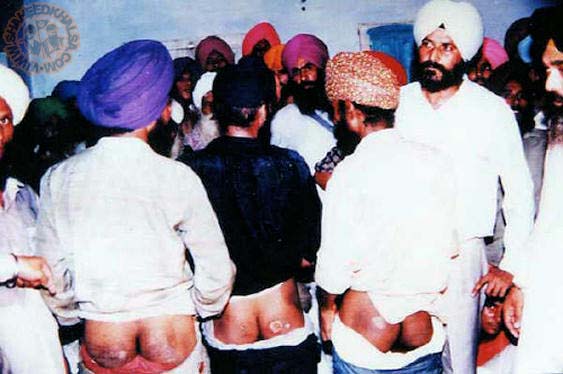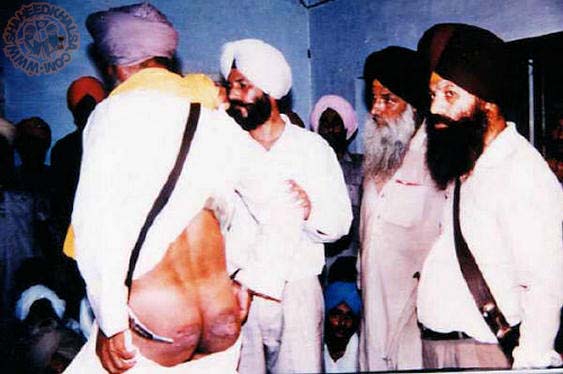

Gallery
|
Torture
"being Sikh, I finds no abuses of Human Rights of Sikhs much less any minorities in India."
The police sometimes have a thick log of wood or a steel tube kept for the purpose, but they often use a ghotna, the pestle about four feet long and four inches in diameter which is used locally for grinding corn or spices. One man reported being beaten on the back with a ghotna, one had the ghotna placed between the thighs and then the ankles tied forcibly together, some had the ghotna placed behind the knees and then the legs flexed over it, but the commonest method, applied in most cases, was for the ghotna to be rolled slowly down the things or calves with one or more of the heaviest policemen standing on it. Usually the roller was said to be smooth and caused no break in the skin, though the pain was unbearable. One man, however, stated that the surface was rough and cut the skin, while another said that a square-section table leg was used. Sometimes the roller was made of stone or metal and clearly made specially for the purpose. One had "Welcome" written on it had another was labelled "75kg". SSP Swaran Singh, known as Ghotna after this brutal type of torture he regularly employs.
A particularly painful method of suspension, is to tie the wrists or arms behind the back and then suspend the whole body weight by them. Most survivors of this treatment have permanent damage to the shoulder joints.
The cheers ("tearing" in Punjabi), it consists of forcing the hips strongly apart, often to 180o, sometimes repeatedly and at other times continuously for 30 minutes or more. This is often done with the victim sitting on the floor with a policeman behind him pulling the head back by the hair while pressing a knee into the back, but in three cases was achieved when the victim was strapped to a manja or charpoi (a wooden bed frame).
|


















